The battle for managerial supremacy: Uncover the top 10 best football managers in the world 2024 and their impact on the game.
As the world of football continuously evolves, the role of a football manager becomes increasingly complex and pivotal.
The year 2024 has seen some of the finest tacticians in the sport cement their status, innovate, and push their teams to new heights.
In this blog post, we delve into the top 10 best football managers in the world, exploring how their strategies, leadership, and ingenuity have set them apart in the highly competitive realm of international football.
From mastering defensive solidity to orchestrating high-octane offenses, these managers not only inspire their squads but also captivate fans and critics alike.
Join us as we celebrate the masterminds who shape the beautiful game and redefine what it means to be a successful football manager in today’s game.
Top 10 Best Football Managers In The World 2024
10 Julian Nagelsmann

Julian Nagelsmann, often hailed as a prodigy in the kingdom of football management, has continued to impress with his innovative tactics and acute tactical awareness.
At just 36 years old, he has already etched his name among the elite managers of the sport. Known for his high-pressing, flexible formations, and emphasis on rapid transitions, Nagelsmann’s approach to the game exemplifies modern football’s dynamic nature.
In 2024, Nagelsmann has further refined his strategies, adapting to both the strengths and weaknesses of his squad. His ability to read the game and make decisive, game-changing adjustments is a hallmark of his coaching style.
This has not only led to significant victories in domestic competitions but also propelled his team to notable successes on the European stage.
He fosters a close-knit team environment and is particularly skilled at managing the personalities and expectations of high-profile players.
His proactive approach to mentorship and emphasis on continuous improvement has made him a respected figure among his players and peers.
As we move forward, it’s clear that Julian Nagelsmann’s influence on football will only grow. His blend of tactical acuity, innovative methods, and strong leadership qualities positions him as not just a coach to watch, but a transformative figure in the evolution of football management.
9 Thomas Tuchel
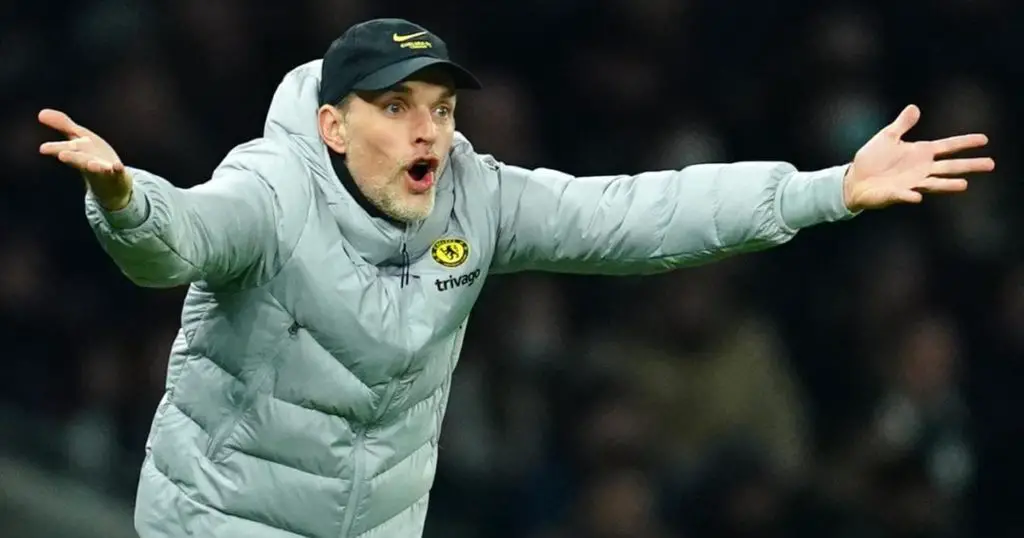
Thomas Tuchel has firmly established himself as one of the foremost tacticians in the footballing world, known for his intellectual approach and versatility.
The German manager’s meticulous attention to detail and his ability to adapt tactically to different opponents have become the cornerstone of his coaching philosophy.
Tuchel’s coaching brilliance has truly shone in 2024. He’s instilled a rock-solid defense in his teams, while still prioritizing attacking flair with a focus on ball possession.
His team’s balanced strategy has achieved two key results: shutting down Europe’s top attacking threats and establishing consistent on-field dominance.
Tuchel expertise in setting up his team to exploit specific weaknesses in the opposition has led to numerous tactical masterclasses throughout the season.
Beyond his tactical acumen, Tuchel is known for his psychological management of players. He excels in building strong, resilient teams capable of enduring the pressures of high-stakes matches.
His direct and often candid communication style has helped in forging deep bonds with his players, fostering an environment where they can thrive both as individuals and as a unit.
Thomas Tuchel’s reputation as a tactically brilliant and inspirational manager continues to grow in 2024 as he demonstrates ongoing adaptability and evolution.
8 Unai Emery
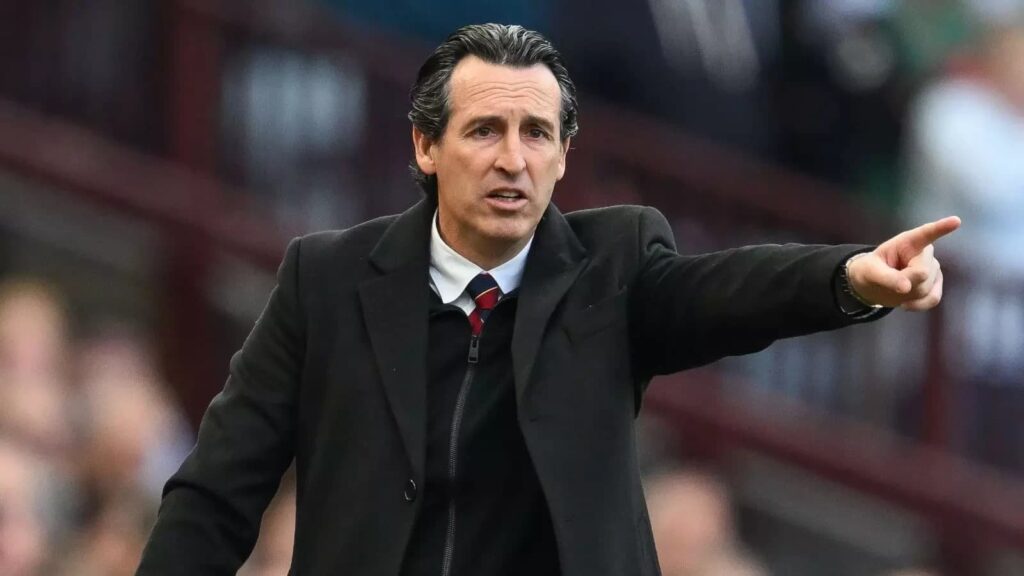
Unai Emery, a name synonymous with resilience and tactical flexibility, has continually shown why he is regarded as one of the top football managers globally.
His career, marked by periods of intense scrutiny and spectacular success, showcases a journey of strategic mastery and persistent adaptation.
Emery’s 2024 approach blends defensive stability with opportunistic attacks. He has a keen eye for detail and is particularly noted for his video analysis sessions, which are both exhaustive and instrumental in preparing his teams for every conceivable scenario.
His expertise in Europa League campaigns, where he has a remarkable track record, underscores his knack for managing high-pressure situations and navigating through complex knockout stages.
Emery strategies often revolve around leveraging the strengths of key players while ensuring the team operates as a cohesive unit. His journey is a testament to the impact a dedicated and strategically minded coach can have on the world of football.
7 Diego Simeone
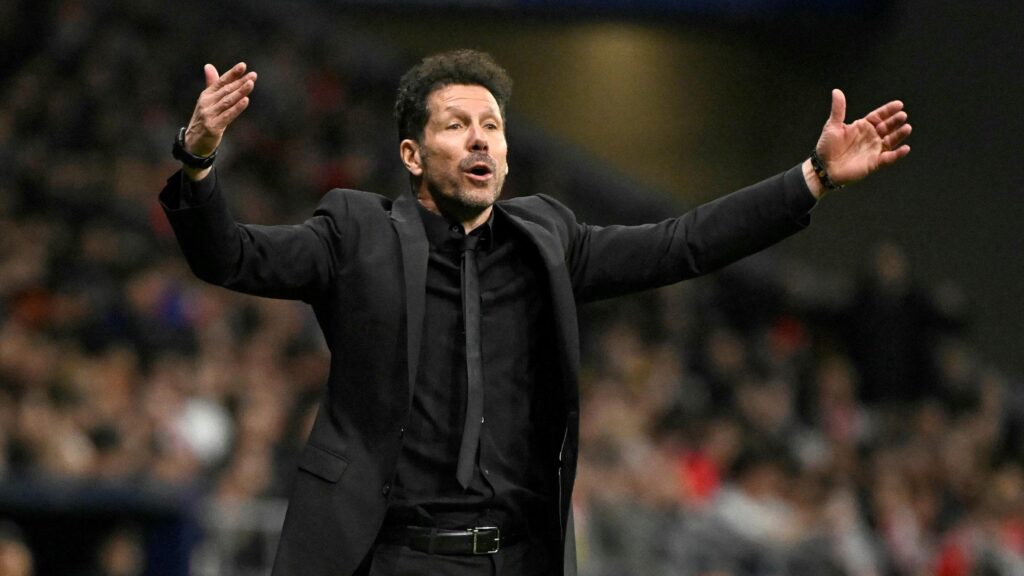
Diego Simeone, often revered as the epitome of passion and intensity in football management, continues to command respect and admiration on the global stage.
Affectionately nicknamed ‘El Cholo’, his coaching philosophy centers on a gritty, relentless style, a trademark that his tenure has instilled within Atlético Madrid.
Simeone’s unwavering commitment to his trademark defensive tactics – emphasizing solidarity, resilience, and tactical discipline – further strengthened his legacy in 2024.
His teams are notorious for their physical fitness, mental toughness, and an almost impenetrable backline, which often frustrates the most talented attacking sides.
Simeone’s approach may not always be flamboyant, but its effectiveness is undeniable, particularly in high-pressure scenarios that define knockout football.
Simeone is a master motivator, forging his teams from talented individuals into a unified force that leaves everything on the pitch.
His game management, especially in crucial matches, often makes the difference, enabling his teams to secure victories against arguably more technically gifted opponents.
Simeone strategic substitutions and tweaks during games demonstrate a deep understanding of his team’s dynamics and the opponent’s vulnerabilities.
His enduring success at Atlético Madrid is a testament to his ability not just to coach, but to inspire and lead with an iron will and fiery heart. Diego Simeone is number 7 in our list of the top 10 best football managers in the world in 2024.
6 Mikel Arteta
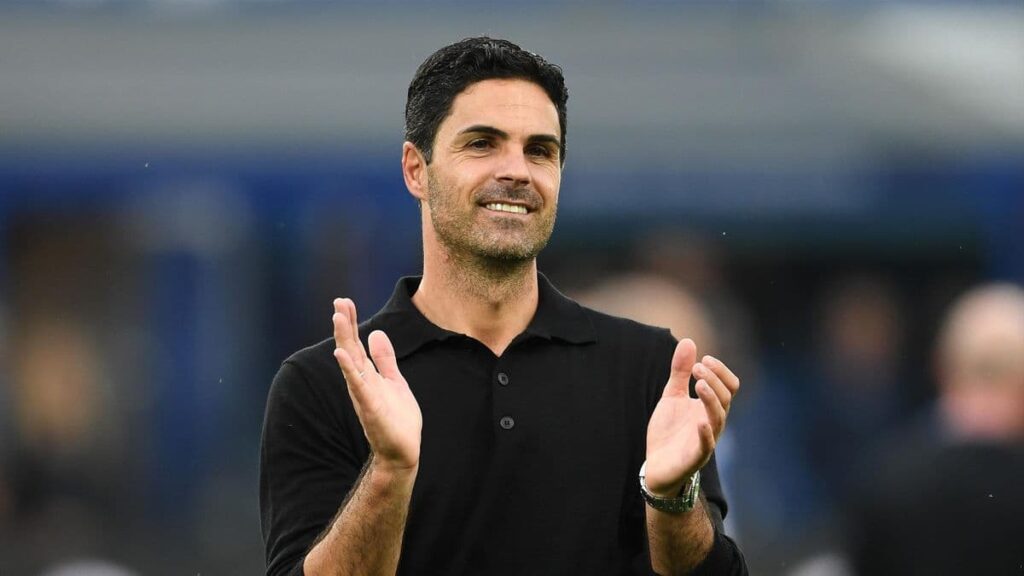
Mikel Arteta, initially seen as a coach learning the ropes under Pep Guardiola, has blossomed into a successful manager by 2024.
As the head coach of Arsenal, Arteta has not only rejuvenated the club but has also instilled a clear and compelling football philosophy that resonates throughout the team.
Arteta’s tactical approach is characterized by flexibility, innovation, and a focus on intense, possession-based football.
His strategy involves intricate passing networks, high pressing, and rapid transitions, which have proven to be highly effective in both domestic and European competitions.
Under his guidance, Arsenal has developed into a team that can dominate possession and aggressively reclaim the ball upon losing it, showcasing a style that is both attractive and assertive.
One of Arteta’s notable strengths is his meticulous attention to player development. He has a keen eye for nurturing young talent and integrating them seamlessly into the first team.
Arteta’s skillful blend of youth and experience has forged a dynamic, resilient Arsenal squad capable of top-tier competition.
His clear communication and strong relationship-building skills have helped solidify a unified team ethos, leading to a robust and cohesive unit.
As we continue through 2024, Mikel Arteta’s influence at Arsenal underscores his evolution from a former player and assistant coach to a top-tier manager.
5 Xabi Alonso
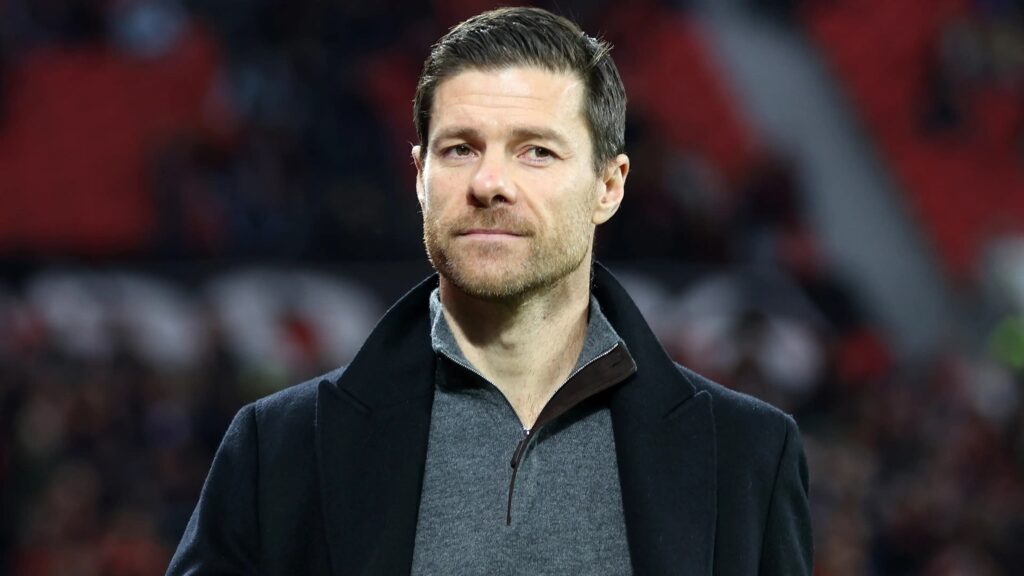
Xabi Alonso celebrated for his illustrious playing career, has smoothly transitioned into a managerial role that underscores his deep understanding of football.
His rise in the coaching ranks has been marked by an elegant approach to the game, mirroring the grace and intelligence he consistently displayed as a player.
By 2024, Alonso has already begun to make significant waves as a manager, noted for his tactical acumen and the stylish play of his teams.
Alonso’s management style is characterized by a preference for controlled, possession-based football combined with a tactical flexibility that allows his teams to adapt quickly to different opponents.
His philosophy revolves around maintaining possession, precise passing, and creating spatial advantages on the field.
A key aspect of Alonso’s managerial success is his ability to communicate complex tactical ideas clearly and effectively. His deep knowledge of the game, gained from playing under some of the best managers in the world, has enabled him to instill a high level of tactical discipline and awareness in his players.
Alonso also places a strong emphasis on the mental aspects of the game, preparing his players to be psychologically resilient and tactically intelligent on the pitch.
He is skilled at integrating these younger talents with more experienced team members, creating a balanced squad that leverages youthful energy and veteran savvy.
His journey in management is still in its relatively early stages, but his impact on the game is already profound, pointing to a promising future in the upper echelons of football coaching.
4 Jurgen Klopp
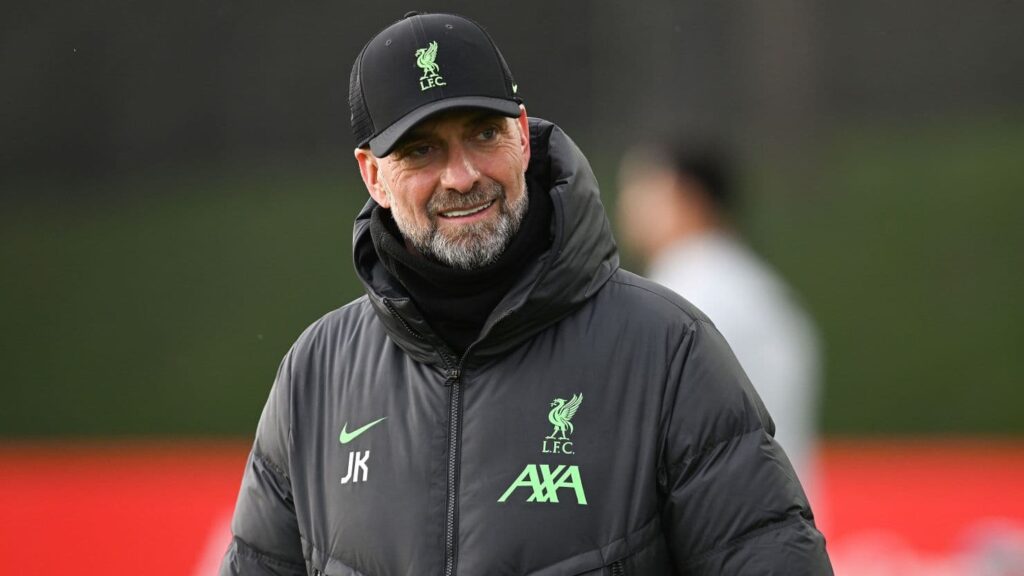
Jürgen Klopp remains a towering figure in the world of football, renowned for his charismatic leadership and the infectious energy he brings to the touchline.
As the architect behind some of the most exhilarating football teams in recent history, Klopp’s impact at Liverpool has solidified his reputation as one of the best managers in the sport.
His ‘heavy metal football’ philosophy continues to thrill fans and challenge competitors in 2024, its intensity and relentless pressing a trademark of his approach.
Klopp’s tactical brilliance lies in his ability to inspire his team to perform at a high-octane pace, with a focus on aggressive pressing, quick transitions, and a cohesive team ethos.
His style is not just about attacking play; it also includes a disciplined defensive structure that allows his team to recover quickly and effectively.
Beyond tactics, Klopp is exceptional in building team spirit and a positive club culture. His genuine care for players and staff, combined with his down-to-earth, approachable manner, makes him a beloved figure among both the fans and the squad.
He understands the psychological aspects of managing a top-tier football team, ensuring that his players are motivated, confident, and focused.
Klopp is also known for his adaptability and willingness to evolve. Over the years, he has shown a remarkable ability to adjust his strategies based on the strengths and weaknesses of his team and the challenges posed by opponents.
His enduring passion for the game and his commitment to excellence remain key ingredients in his recipe for sustained success. As he molds his team for the challenges ahead, Klopp’s legacy as a transformative figure in football is unmistakably secure.
3 Simone Inzaghi
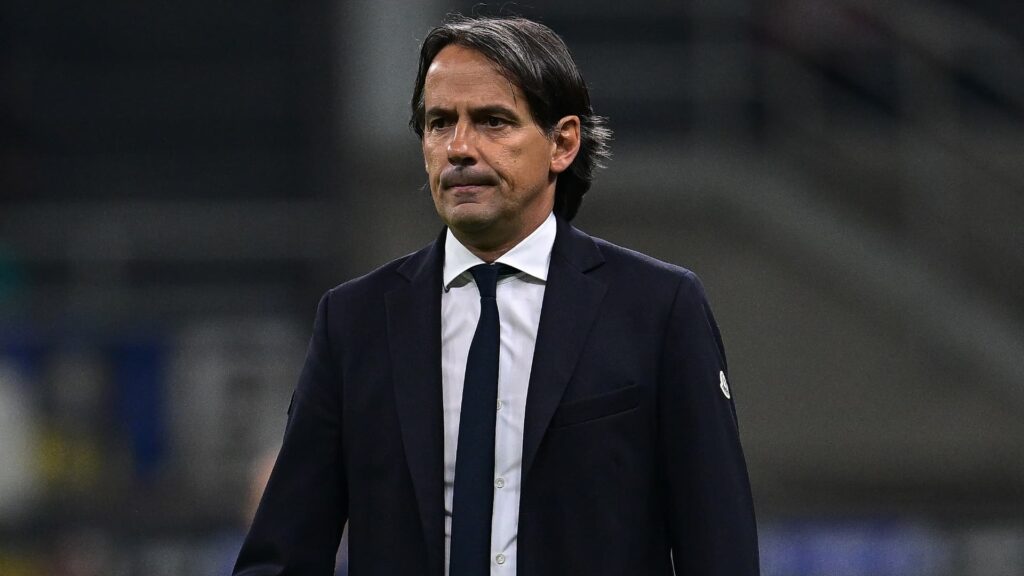
Simone Inzaghi, once a prolific striker for Lazio, has adeptly transitioned to a management role, demonstrating a remarkable aptitude for coaching at the highest levels of football.
Inzaghi’s tactical approach is heavily influenced by his playing career, focusing on dynamic attacking play and solid defensive organization.
He employs a flexible system, often favoring a fluid 3-5-2 formation that allows his teams to transition swiftly between defense and attack. By strategically utilizing key players’ strengths, this setup provides both defensive solidity and a potent attacking threat.
He is adept at reading the flow of a match and making tactical adjustments that can alter the course of the game. His proactive decision-making during matches demonstrates a keen strategic awareness that keeps opponents on their toes.
Renowned for his ability to bond with players, he cultivates a team atmosphere that maximizes their potential. His motivational skills are particularly evident in how his team performs in crucial fixtures, often exceeding expectations and thriving under pressure.
Under his guidance, his team is not only competitive but also consistently showcases a style of play that is both effective and exciting to watch.
2 Carlo Ancelotti
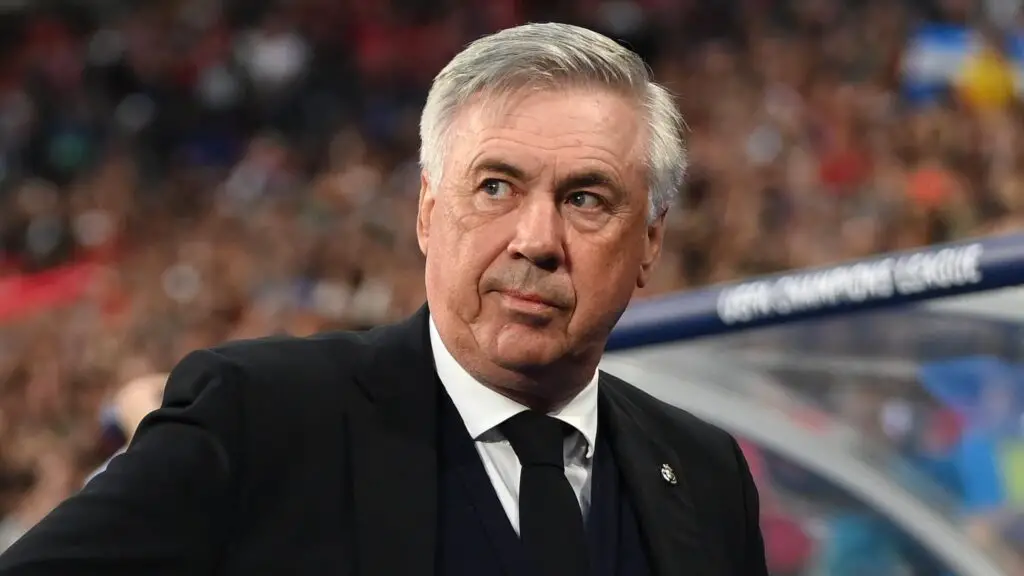
Carlo Ancelotti’s illustrious managerial career spans several of Europe’s top clubs, where he has consistently demonstrated his mastery of the game and his capacity to win at the highest levels.
Ancelotti’s coaching philosophy is characterized by its flexibility and balance. He does not adhere strictly to a single system; instead, he adapts his tactics to fit the strengths of his players.
His remarkable adaptability has been the key to his success, enabling him to excel in diverse leagues with unique cultural demands and playing styles.
Whether guiding a team through a tightly contested league race or a high-stakes European night, Ancelotti’s teams are well-organized, composed, and technically proficient.
A key aspect of Ancelotti’s approach is his man-management skills. He is renowned for his ability to handle big personalities, ensuring that each member of his squad feels valued and motivated.
His calm authority excels in demanding teams with mixed squads, creating a united and driven dressing room.
He is a master of making subtle tweaks that can change the dynamics of a game, whether it’s shifting formations, adjusting player roles, or timing substitutions perfectly to exploit the fatigue or tactical vulnerabilities of opponents.
His tactical adaptability, strategic genius, and inspiring leadership have made him a revered figure in football, a true icon of the sport.
1 Pep Guardiola
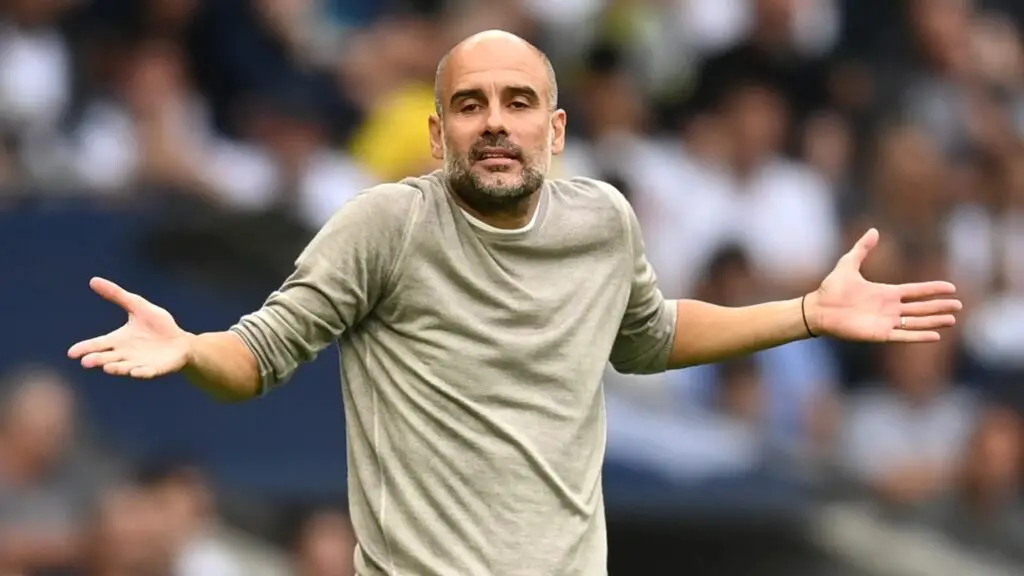
Pep Guardiola remains one of the most influential figures in modern football, with a coaching philosophy that has permanently altered the landscape of the game.
Guardiola’s legacy as a tactical innovator will be further enhanced by 2024, thanks to his signature style of beautiful possession football and high-energy pressing. His approach is both revered and studied extensively, a testament to his profound impact on the sport.
Guardiola’s style is rooted in meticulous tactical preparation and an unwavering commitment to his principles. He is renowned for his innovative tactics, often employing complex positional play that requires high levels of player intelligence and technical skill.
At the heart of Guardiola’s success is his obsessive attention to detail. He prepares for matches with a deep dive into the tactical nuances, leaving no stone unturned. With an uncanny ability to anticipate and counter his opponents’ strategies, he consistently dominates critical matches.
He revolutionized football tactics, leaving a lasting impact beyond the teams he coached. His relentless passion for the game secures his place as a football icon.
Frequently Asked Questions:-
Determining the absolute “number one” football manager is subjective, as success can be measured in various ways. However, some of the most consistently successful and highly-regarded managers in the world include:
* Pep Guardiola (Manchester City): Known for his possession-based, attacking style and numerous titles.
* Carlo Ancelotti (Real Madrid): Respected for his tactical flexibility, player management, and multiple Champions League wins.
* Jürgen Klopp (Liverpool): Famous for his high-energy pressing style and ability to motivate players.
There’s no single definitive answer, as “best” can be subjective. However, some of the most successful and influential football (soccer) managers include:
* Sir Alex Ferguson (Manchester United): Known for his longevity, trophy haul, and ability to develop players.
* Pep Guardiola (Barcelona, Bayern Munich, Manchester City): Revered for his innovative tactics and possession-based style.
* José Mourinho (Porto, Chelsea, Inter Milan, Real Madrid): A master tactician, famous for his defensive strategies and winning mentality.
Disclosure: Our content is reader-supported. If you click on certain links we may make a commission. Learn More.
Discover more from Sportshubnet
Subscribe to get the latest posts sent to your email.




